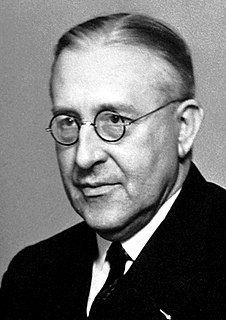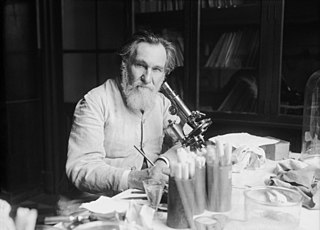A Quote by Albertus Magnus
Natural science does not consist in ratifying what others have said, but in seeking the causes of phenomena.
Related Quotes
It is one thing to say that science is only equipped to test for natural causes and cannot speak to any others. It is quite another to insist that science proves that no other causes could possibly exist. . . . There would be no experimental model for testing the statement: 'No supernatural cause for any natural phenomenon is possible.' It is therefore a philosophical presupposition and not a scientific finding.
Bohr’s standpoint, that a space-time description is impossible, I reject a limine. Physics does not consist only of atomic research, science does not consist only of physics, and life does not consist only of science. The aim of atomic research is to fit our empirical knowledge concerning it into our other thinking. All of this other thinking, so far as it concerns the outer world, is active in space and time. If it cannot be fitted into space and time, then it fails in its whole aim and one does not know what purpose it really serves.
Our design, not respecting arts, but philosophy, and our subject, not manual, but natural powers, we consider chiefly those things which relate to gravity, levity, elastic force, the resistance of fluids, and the like forces, whether attractive or impulsive; and therefore we offer this work as mathematical principles of philosophy; for all the difficulty of philosophy seems to consist in this from the phenomena of motions to investigate the forces of nature, and then from these forces to demonstrate the other phenomena.
I've been working hard on [Ulysses] all day," said Joyce. Does that mean that you have written a great deal?" I said. Two sentences," said Joyce. I looked sideways but Joyce was not smiling. I thought of [French novelist Gustave] Flaubert. "You've been seeking the mot juste?" I said. No," said Joyce. "I have the words already. What I am seeking is the perfect order of words in the sentence.
Laplace considers astronomy a science of observation, because we can only observe the movements of the planets; we cannot reach them, indeed, to alter their course and to experiment with them. "On earth," said Laplace, "we make phenomena vary by experiments; in the sky, we carefully define all the phenomena presented to us by celestial motion." Certain physicians call medicine a science of observations, because they wrongly think that experimentation is inapplicable to it.











































